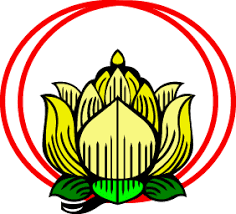Convocation 2023
UU Buddhist Fellowship
Convocation is a biennial opportunity for UU Buddhists to sit together, compare notes on our sangha experiences, study and play together. We have been holding convocations since 2005. For each convocation we invite a guest teacher to offer dharma talks and teaching. In addition, there will be times of meditation, workshops, and informal meals and breaks where you can get to know other attendees.
The 2023 Convocation will begin on Thursday, April 27, with a “grab and go” dinner available at 6 pm, and will end on Sunday, April 30 at 11:30 am. The DeKoven Center, is lovely retreat center on the shores of Lake Michigan.
You can register as 1) an online zoom participant, 2) a commuter participant with meals, or 3) an in-person participant, including lodging. There will also be a public talk on Saturday, April 29.
An early-bird discount on registration will end on February 1, but registration will continue until 4/12/2023. A limited number of scholarships are available. If you are in need of a scholarship in order to attend, please email [email protected] before registering.
There are several major airports nearby (including O’Hare and Milwaukee), and Racine is also served by Amtrak trains. We will be arranging carpooling for the retreat, connecting those who can provide rides with those in need of ground transportation.
More on David Loy and the theme of the Convocation
Dr. David Robert Loy is a professor of Buddhist and comparative philosophy and Zen teacher in the Sanbo Zen tradition of Japanese Zen Buddhism. Loy is one of the founding members of the new Rocky Mountain Ecodharma Retreat Center, near Boulder, Colorado. He is the author of many books, including Ecodharma: Buddhist Teachings for the Ecological Crisis.
For our weekend together, Loy writes:
“Traditional Buddhist teachings help us wake up individually and realize our interdependence with others. Today we need to wake up collectively in another way. We need to wake up to what is one of the greatest dangers that humanity has ever encountered. Buddhism can help us understand and respond appropriately to the climate emergency driven ecological crisis. Neither the Buddha nor Asian Buddhist traditions have faced the complex set of challenges of the twenty-first century. Yet Buddhism includes many teachings that are relevant to our situation.
There are profound parallels between our individual human struggles which Buddhism addressed and our ecological predicament today. The parallels suggest that the eco-crisis is as much a spiritual challenge as a technological and economic one. In both cases, at the root of the problem is our illusion of separation: that “I” am separate from others, and that we are separate from the natural world.
Perhaps the most important thing that Buddhism has to offer today is a new version of the bodhisattva — or ecosattva — path, which can respond to collective and institutionalized versions of greed, ill will and delusion (the three poisons). All this suggests, the ecological challenge is also a challenge to the ways we understand and practice Buddhism.”













